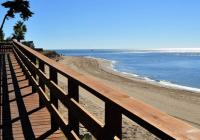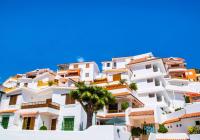
Renting out your Spanish holiday home when you’re not staying in it can feel like an incredibly easy way to make money from your property. And with the huge popularity of online property rental marketplaces, such as Airbnb, making extra cash by renting out your property is even more tempting than ever. But what you might not know is that the Spanish rental market is highly regulated, and that you will need to apply for a tourist license, as well as pay tax on any income you make.
To help you decide whether listing your property on Airbnb is the right choice for you, here’s everything you need to know about how to operate within the arena in Spain:
The Popularity of Airbnb in Spain
The Coronavirus pandemic has caused the number of tourist rentals in Spain to decline slightly, but the number available is still incredibly significant. If you look at 2019’s figures, there were over a million tourist apartments in Spain, and half a million Spanish properties registered on Airbnb.
Whilst Airbnb is clearly a popular choice with tourists, it is much less popular in Spain. Many city councils are fighting against the number of illegal, and unregulated properties that are being listed on Airbnb, and many rental businesses also find it difficult to compete against the Airbnb market. Meanwhile, the huge number of properties available to rent through these networks is having a negative knock-on effect on rental prices for residents in the country.
The Legal Requirements for Renting out Property in Spain?
Each of the autonomous regions in Spain will have their own rules and regulations regarding renting out property in Spain, either through Airbnb or another source. However, as a general rule, you will need to secure a tourist license for your property if you wish to rent it out to tourists. The best rule of thumb is to visit your local town hall to find out whether you will need to register in person or online, through your regional government’s website.
If your property is in an apartment building then you should also be aware that a new law was passed across Spain in March 2019 that specifically affects tourist apartments in apartment buildings. This law states that if three-fifths of a building’s owners vote against having a short-term rental in the building then an apartment owner can be prohibited from opening up their property as a tourist let. Seeking permission from the other owners in your building, therefore, is a good first step before registering with the authorities.
What Are the Short-Term Rental Rules in My Region?
The rules for letting out your property via Airbnb not only differ from region to region, but they can also vary from city to city. In the cities of Barcelona and Valencia, for example, the rules are different to the general rules in the regions where they are based. To help you make a more informed decision, here is a breakdown of the rules for each of Spain’s regions:
Andalusia
Any residential property that is rented out to tourists for a fee is considered a tourist accommodation in Andalusia. In order to do this and let your property, either through Airbnb or another channel, you need to register your property with the Tourism Register of Andalucía, and agree to comply with the regulations of the Tourism and Sports Council. Your application will be either approved or denied and, if approved, you will be given a registration number which you must display on your Airbnb listing.
Catalonia
Your property must be registered with the municipal authorities in order to be let legally, and you must also apply for a tourist license. This is a relatively easy process, and you can apply for your licence or Habitatge d’Ús Turístic (H.U.T) number here. However unfortunately, licenses aren’t being issued in some areas of Catalonia, in a bid to limit the number of short term lets and Airbnb rentals available in each region.
Madrid
As with all of the other regions mentioned above, in Madrid, you have to add your tourism license number to your Airbnb listing. You are required to register for this license here, and in doing so agree with all of the existing tourism let regulations. Whether or not your license application will be accepted depends on the district that you live: In March 2019, Madrid city limited the number of tourist rentals possible in different neighbourhoods, so if you plan on renting out an Airbnb apartment in the city, you’ll need to contact Madrid City Council and see if there is availability in your area.
Balearic Islands
If you want to rent out your property to tourists in the Balearic Islands then you must register your property, and obtain a registration number from the General Register of Companies, Activities and Tourist Establishments of the corresponding Council in the island that your property is based. It’s important to note that the Balearic Islands, in particular Mallorca, have cracked down on tourist rentals and therefore licenses are hard to get: since July 2018 there has been a complete ban on tourist apartments in the capital of Palma de Mallorca, for example.
Asturias
If you want to rent out your flat on Airbnb in Asturias, you will need to register your accommodation with the Ministry of Employment, Industry, and Tourism here. Once you have completed this form, you will receive a registration certificate: this certificate must be displayed on your Airbnb listing.
Navarra
To register a tourist let in Navarra, you will be required to complete and submit a responsibility statement to the Navarra Tourism Registry. You can complete this registration form, an apply for your property license online. This web page will outline the what you need to do to complete the process, and this will vary slightly depending on whether your property is in a rural or tourism region.
What Are the Tax Implications of Letting my Property on Airbnb?
The tax implications of letting your property on Airbnb will vary from person to person, depending on your individual circumstances, but you should be aware that you will be liable to pay tax on any income you earn from letting out your property. Your rental earnings should be declared to the hacienda, and you will also have to declare whether you have Spanish residency or whether you own Spanish property as a non-resident. This will also impact what you will pay with EU-based non-residents taxed at 19% and non-EU based non-residents taxed at 24%.
If you are a non-resident homeowner from an EU or EEA country, however, you can claim back significant expenses, including your mortgage interest, community fees, home insurance and IBI which will help to further reduce the tax you will pay in real terms. These same expenses rules do not apply to non-resident non-EU property owners.
If you only let your property occasionally then you will need to present your earnings on a ‘declaración de la renta’ tax return. If you rent your property regularly, and operate it as a business, then you will either need to register as a business or as self-employed (known in Spain as autonomo). Once you do this, you will need to submit quarterly tax returns and pay social security contributions. The other tax you should be aware of, depending on your region, is that you may be required to collect a nightly tourist tax from your guests, and this income (and the tax claimed) should be declared to the local authorities.
The best advice is to speak to an accountant or a tax advisor about your tax situation, the amount you will be liable to pay, and any other financial consequences of letting your property.
What is Modelo 179?
Modelo 179 is a new tax form that was introduced across Spain in 201, in a bid to target intermediary businesses such as Airbnb and ensure the government better insight into how much is made through these businesses. The form will require the business to identify the properties and the owners renting out apartments on their site, the number of days the property has been rented out for, the income amounts and the means of payment.
As a result of the introduction of Modelo 179, you cannot avoid declaring your rental income, because Airbnb (or whichever intermediary you choose to use) will have already detailed a record of your rental income to the government.
What If I Don’t Get a Tourist License?
The result of listing your property on Airbnb without having a valid tourist license is that the government could implement a hefty fine: these fines differ from region to region. As an example, renting out a property illegally in Barcelona could incur a fine of up to 60,000 euros, and in the Balearic Islands fines range from between 20,000 and 40,000 euros.
Are you thinking of moving to Spain? Or looking for a holiday home that you can let when you’re not using it? Then why not get in touch with our locally based property experts, who are perfectly placed to help make you dream of Spanish home ownership a reality. We’re already excited to work with you!

 English
English Español
Español Deutsch
Deutsch Français
Français Svenska
Svenska Nederlands
Nederlands Italiano
Italiano Norsk
Norsk Русский
Русский

































